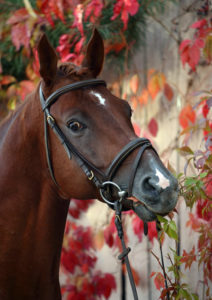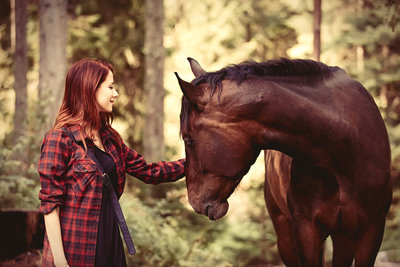Summer is coming to an end and fall is almost here. Changes in weather can bring about changes to the way you ride and care for your horse. Understanding the ways that colder weather can affect your horse can help you take care of your animal friend, ensuring your horse’s good health throughout the fall and into the winter. These tips will help you take care of your horse as the fall comes around once again.
Water and Hydration Changes
As the weather cools down, drinking cool water may start to seem less appealing to your horse. Adding electrolytes to the water that your horse drinks will help your horse stay hydrated. If your area gets a hard freeze in the late fall, don’t forget that ice on your horse’s water may need to be broken up to ensure your horse can get to the liquid water beneath. Checking the water regularly throughout the day will ensure that your horse has access to water when he or she needs it.
Vaccinations
Fall is a time for vaccinations. Your horse’s veterinarian may be tracking your horse’s vaccinations, but if not, you should be tracking the vaccinations yourself. Either way, your horse will need to be vaccinated against diseases like tetanus, west Nile virus, equine influenza, and others. Remember that your horse needs a rabies vaccine once a year, so if it’s been a year since the last time your horse was vaccinated against rabies, now is the time to get another one.
Consider Blankets Carefully
Blankets are not necessary for every horse, as many horses have naturally thick, protective coats of fur. Typically, the only horses that need blankets are those that are sickly, thin or both. Remember that some show horses have thin coats and thus need blankets in order to stay warm. If your horse does not fall into one of these three categories, then your horse will probably be fine without a blanket. If you’re not sure about your horse’s need for a blanket, talk to your horse’s veterinarian.
Watch Out for Acorns
Horses like to eat acorns, but this can cause discomfort and gastronomic problems in horses. Pay close attention to your horse’s surroundings to ensure that he or she has limited or no access to acorns that have fallen on the ground. Avoid leaving your horse in a pasture where oak trees grow.
Join the National Animal Supplement Council
At the National Animal Supplement Council, we’re dedicated to the task of helping horse owners take care of their horses throughout the the year. We promote good health in animals by educating horse owners about proper diet and dietary supplements. To join our organization and promote healthy living in your horse, click here.


